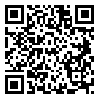
Journal of Health And Care

Volume 24, Issue 3 (Autumn 2022)
JHC 2022, 24(3): 193-204 |
Back to browse issues page
Ethics code: IR.ARUMS.REC.1400.074
Download citation:
BibTeX | RIS | EndNote | Medlars | ProCite | Reference Manager | RefWorks
Send citation to:



BibTeX | RIS | EndNote | Medlars | ProCite | Reference Manager | RefWorks
Send citation to:
Ahmadi S, Basharpoor S, Atadokht A, Narimani M, Hasani F. Pattern of Structural Relationships between Dysfunctional Personality Beliefs and Dependence Severity in Substance Dependent People: Mediated by difficulty in Emotion Regulation. JHC 2022; 24 (3) :193-204
URL: http://hcjournal.arums.ac.ir/article-1-1388-en.html
URL: http://hcjournal.arums.ac.ir/article-1-1388-en.html
Department of Psychology, School of Educational Sciences and Psychology, University of Mohaghegh Ardabili, Ardabil, Iran
Abstract: (696 Views)
Background & aim: Addiction is a chronic relapsing mental disorder defined by physical and psychological dependence on substances. The present study was conducted with the aim of modeling the structural relationships between dysfunctional personality beliefs and the dependence intensity in substance dependent people with the mediation of difficulty in emotion regulation.
Methods: The intended research was applied in terms of purpose and among correlational research. The statistical population included all drug addicts who referred to addiction treatment camps in Ardabil in 2021. Two hundred addicted people completed the questionnaires of dependency intensity, emotion dysregulation, and dysfunctional personality beliefs using available sampling method. Pearson correlation coefficient and structural equation modeling were used to analyze the data.
Results: The results of the correlation coefficients showed that the severity of substance dependence has a positive and significant relationship with ineffective personality beliefs (r=0.44, p=0.001) and difficulty in regulating emotions (r=0.49, p=0.001). Also, difficulty in regulating emotions has a positive and significant relationship with dysfunctional personality beliefs (r=0.25, p=0.001). The model had a good fit based on the goodness of fit indices. Dysfunctional personality beliefs had an effect on dependency severity both directly and indirectly through the mediation of difficulty in emotion regulation.
Conclusion: From a practical point of view, it is necessary to provide regular training programs for substance dependent people using the principles of cognitive-behavioral therapy to determine the patients’ dysfunctional beliefs about addiction, and ultimately helping the patients to create more effective beliefs and behaviors, and cadaptive emotion regulation strategies.
Methods: The intended research was applied in terms of purpose and among correlational research. The statistical population included all drug addicts who referred to addiction treatment camps in Ardabil in 2021. Two hundred addicted people completed the questionnaires of dependency intensity, emotion dysregulation, and dysfunctional personality beliefs using available sampling method. Pearson correlation coefficient and structural equation modeling were used to analyze the data.
Results: The results of the correlation coefficients showed that the severity of substance dependence has a positive and significant relationship with ineffective personality beliefs (r=0.44, p=0.001) and difficulty in regulating emotions (r=0.49, p=0.001). Also, difficulty in regulating emotions has a positive and significant relationship with dysfunctional personality beliefs (r=0.25, p=0.001). The model had a good fit based on the goodness of fit indices. Dysfunctional personality beliefs had an effect on dependency severity both directly and indirectly through the mediation of difficulty in emotion regulation.
Conclusion: From a practical point of view, it is necessary to provide regular training programs for substance dependent people using the principles of cognitive-behavioral therapy to determine the patients’ dysfunctional beliefs about addiction, and ultimately helping the patients to create more effective beliefs and behaviors, and cadaptive emotion regulation strategies.
Type of Study: Correlation |
Subject:
Nursing care
Received: 2022/08/16 | Accepted: 2022/11/1 | Published: 2022/12/1
Received: 2022/08/16 | Accepted: 2022/11/1 | Published: 2022/12/1
Send email to the article author
| Rights and permissions | |
 |
This work is licensed under a Creative Commons Attribution-NonCommercial 4.0 International License. |




